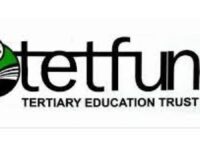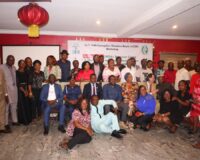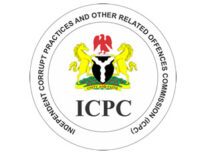Introduction and Backgrounds
As usual, the end of the year 2022 presents yet another opportunity to assess the fight against corruption. No doubt, it remains a consistently sad account that the annual Corruption Perception Index (CPI) released by Transparency International (TI) continues to rank Nigeria low on anti-corruption. The issues and concerns remain constant and it is unclear whether much has actually changed.
Although according to the Independent Corrupt Practices and Other Related Offences Commission (ICPC), in 2022, a total of 672 and 565 non-petition-led investigations were successfully conducted. The Commission also recovered 117 billion Naira as proceeds of crime during the period. During the same period, the Economic and Financial Crimes Commission (EFCC) secured 3,328 convictions in addition to forfeiture of N775 million and landed properties linked to two former government officials; as well as forfeiture of 40 assets in Nigeria, the United States of America, London and Dubai belonging to former deputy Senate President, Ike Ekweremadu.
Despite this, the issue of abandoned corruption cases is one that has remained a feature of Nigeria’s corruption situation up to 2022. A recent study conducted by the Human and Environmental Development Agenda (HEDA Resource Centre) chronicles 35 various cases of corruption that remained unresolved between 1999 and 2022 involving about 826 billion US dollars. This is not to mention cases that are being prosecuted and prolonged for years within the court system. According to the 6th (2022) edition of a compendium of 100 High Profile Corruption Cases in Nigeria, covering the period between 2015 and 2022, also released by HEDA, more than 21 trillion Naira and over 47 billion US Dollars are involved in several pending and some concluded cases.
The year 2022 was also filled with developments that caused concerns for whistle-blowers. There is a need to review various issues affecting whistle-blowing with a view to advancing the cause of exposing corruption in 2023. Beyond the continued lack of comprehensive legal protection for whistle-blowers, the Oath of Secrecy in the civil service has continued to serve as a readily available tool in the hands of corrupt officials to victimize while-blowers despite the cover provided against it by the Freedom of Information (FOI) Act. How can we address these in 2023? What are available interim measures to deploy?
The role of media in the onslaught against corruption is yet another area in need of review. How has the media helped in protecting whistle-blowers? How is the media helping to spotlight abandoned and delayed cases? How better can the media help in exposing oppressors of whistle-blowers? Allied to this is the role of the National Orientation Agency (NOA), what has been the impact of this organisation in the last year in sensitizing against corruption? What can be done better in 2023?
While there has been debate as to the performance of the Buhari Administration in the fight against corruption, two incidents seemed to have narrowed the discussion, making it difficult to defend the genuineness of the fight against corruption under President Buhari. One of these is the series of shocking theft, with a 2022 notable example being the one involving the former Accountant General of the Federation, Ahmed Idris, who allegedly stole about 109 billion Naira.
The second 2022 development that cast serious doubts on the genuineness of the fight against corruption under this government was the State Pardon granted by the President to 159 prisoners, two of whom were Joshua Dariye and Jolly Nyame — ex-governors of Plateau and Taraba states, respectively. While Dariye was found guilty and jailed for stealing N1.16 billion, Nyame was sentenced for N1.6 billion. There have been arguments about the legality, moral validity, and political correctness of this development7.
The 29th Anti-Corruption Situation Room (ACSR) was themed: “State of Anti-corruption in Nigeria: Review of 2022 and Agenda for 2023” with the objective of looking at these issues with a view to educating stakeholders and setting an agenda for the New Year even as the country settles into an election year. This is to review the fight against corruption in 2022 with a view to making agenda-setting recommendations to key stakeholders in the fight against corruption in 2023; reorganize the civil society and the media for a stand against persecution of anti-corruption activists – including whistle-blowers and journalists – and defend activists’ rights; and sensitize stakeholders on key anti-corruption development and highlight perspectives for progress.
The event, chaired by Prof. Sadiq Isah Radda, Executive Secretary of the Presidential Advisory Committee Against Corruption (PACAC), was attended by over 50 stakeholders from the state and non-state actors across Nigeria including, Dr. Kole Shettima, MacArthur Foundation; AbdulRasheed Bawa, EFCC Chairman ably represented by Hadiza Gamawa, Chief of Staff to the EFCC Chairman; Mrs. Kemi Okenyodo, Executive Director, Partners West Africa; Comrade Yunusa Z. Ya’u, Executive Director, Centre for Information, Technology, and Development (CITAD); Dr. Chido Onumah, Coordinator, AFRICMIL; Peggy Chukwuemeka, Executive Director, Parent-Child Intervention Centre; Comrade Jaye Jaskiya, Executive Director, Praxis Academy; Mrs. Adenike Aloba, Program Director, Dataphyte; Ms. Ladi Bala, President NAWOJ; Ms. Lillian Ekeanyanwu, UNODC; Dr. Ibrahim Zikirullah, Executive Director, Resource Centre for Human Rights; Mr. Tijah Bolton-Akpan, Executive Director, Policy Alert; Comrade Taiwo Otitolaye, National Coordinator, PWYP; Comrade Celestine Akpobare, National Coordinator, Ogoni Solidarity Forum; and Mr. Femi Falana SAN, Human Rights Lawyer, who delivered the keynote speech, among others.
Following four presentations, discussions, and extensive deliberation, the following communique was adopted:
Observations
Participants observed that:
- Corruption poses a great threat to the Nigerian state and society and all efforts aimed at defeating it must be made. Society.
- The implementation of the constitutional laws has been the major challenge for Anti-Corruption Agencies.
- Media responsibility is below recommendation regarding corruption-based reports and its media agenda setting as what ought to be is not been put to the public space.
- Corruption is systemic as corrupt politicians, officials network to truncate the efforts of civil society organizations, and media in the fight against the menace.
- The Presidential pardon intent is an issue in the fight against corruption as it is about playing politics and pardoning influential and wealthy individuals.
- The judiciary system’s pro-activeness in handling corruption cases and dispensing justice is also below par and making the media to lose interest or track in following up on corruption cases.
- Media and CSO collaboration on whistle-blower policy has been commendable and a morale boost in the fight against the national menace.
- The safety of whistle-blowers and has been a major concern as the policy does not provide or guarantee the safety of whistle-blowers in the fight against corruption.
- Cybercrime Act has constrained the freedom of the media and limited the press in the fight against corruption in Nigeria.
- It was established that corruption takes place in the dark and under the table, therefore media has the responsibility to expose corruption and make it visible.
Recommendations
Participants recommended that:
- The efforts of Anti-corruption authorities and other law enforcement agencies must be complemented by the Civil Society Organisations.
- Civil Society activism should go beyond the political class at the Federal level, activism should also cover activities of judges, court registry, professionals in the private sector, and foreign businesses in the extractive industry.
- The Media should seek out people of honor and integrity for celebration which will serve as a morale booster for other Nigerians. Similarly, the media has a duty to keep the ills of corruption as a national issue and it should engage in naming and shaming of convicted looters.
- The fight against corruption can achieve more result if we have a vibrant whistle-blowing mechanism. This will allow for the use of non-conviction asset forfeiture regimes.
- Treasury looters must be denied any benefit from their loot. Also, all recovered assets must be properly managed and utilized for the people.
- The need to push the Administration of Criminal Justice Monitoring Committees (ACJMC) in the public space as it ought to be the body that brings the critical stakeholders together (CP, NCOS, LACON etc.)
- The need for a review of the Criminal and Penal Codes for the ACJA to stand and the in-depth awareness of the existence and provisions of the criminal laws.
- Any government committed to the delivery of social service to the citizens must wage a serious war against corruption.
- Nigeria must work very hard to apply all existing laws on anti-corruption and ACJA and its principles must be applied appropriately.
- Citizen engagement, opinion leaders’ involvement and sensitization must continue as we fight corruption in Nigeria.
- For the fight against corruption to be total and comprehensive, States and Local governments must be involved fully.
- The need for the deployment of technology in the conduct of official businesses is very crucial. Relevant stakeholders should also leverage on technology to enhance Nigeria’s fight against corruption.
- The issue of State Pardon should be handled with great care and responsibility, henceforth, pardon should not be extended people convicted of corruption in Nigeria.
- Fighting corruption requires a fair, objectives and investigative media that devoid of sensationalism and unethical conduct.
- In fighting corruption, citizens in both the public and private sectors must take personal responsibility. Therefore, must be law-abiding and respecters of due process, protocols and procedures.
- The condition of service, reward system and autonomy of media practitioners as well as improving their skill set is crucial in the fight against corruption in Nigeria.





